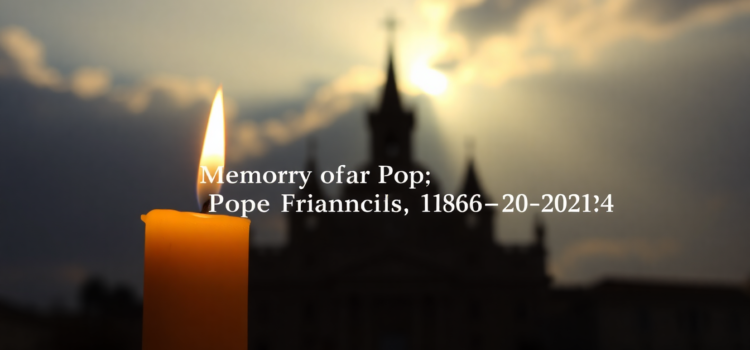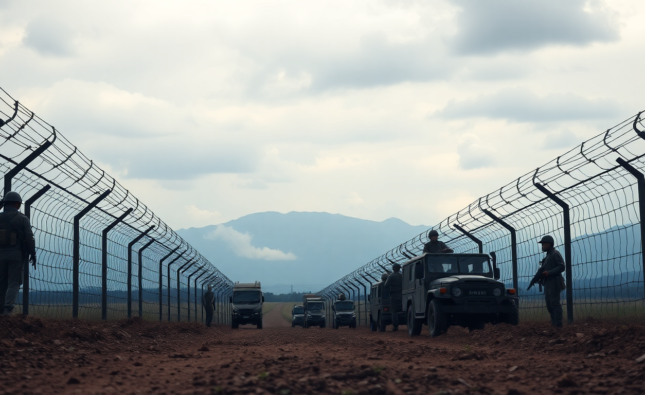
Pope Francis Dies at 88: Stroke and Heart Failure as Confirmed by Vatican
Introduction
In a somber moment for the Catholic Church, Pope Francis has passed away at the age of 88. The Vatican confirmed that the beloved pontiff died due to a cerebral stroke, which led to a coma and irreversible heart failure. This tragic event occurred just after Easter Sunday, a day after his last public appearance. This article delves into the final days of Pope Francis, highlighting his significant health challenges and the worldwide reaction to his passing. His death marks the end of his 12-year papacy, which has left an indelible impact on over 1.4 billion Catholics globally.
Pope Francis’ Final Days and Health Struggles
The Vatican’s official death certificate cites a cerebral stroke and subsequent heart failure as the causes of Pope Francis’ demise. Prior to his death, he had been battling various health issues, including a prolonged 38-day hospitalization for double pneumonia. Known for his chronic lung disease, high blood pressure, and diabetes, Pope Francis faced significant health obstacles throughout his life. Notably, he had part of his lung removed as a young man, a fact that had always shadowed his respiratory health. Despite these challenges, Pope Francis continued his duties and made his last public appearance on Easter Sunday, offering a blessing to the crowds gathered in St. Peter’s Square.
Pope Francis’ Final Testament and Funeral Arrangements
After the confirmation of his death in the early hours through electrocardiographic thanatography, the Vatican announced that Pope Francis’ body would be transferred to St. Peter’s Basilica for public viewing. His funeral arrangements will honor his wishes for a simple burial at the St. Mary Major Basilica, close to a much-revered icon of the Virgin Mary. Cardinal Kevin Farrell has been tasked with fulfilling these funeral plans.

The Process of Selecting Pope Francis’ Successor
With the passing of Pope Francis, the Catholic Church enters a period of Sede Vacante, translated to mean the Holy See is vacant. The College of Cardinals will soon convene to select a new pontiff. This conclave is a critical event for the Catholic community, bearing the potential to shape the Church’s future direction. Pope Francis’ successor will inherit a leadership complex in its theological and global outreach nuances. As the first Latin American pope, Pope Francis was a pivotal figure known for his progressive views and outreach to the marginalized. His influence will undoubtedly be a point of reference in the considerations of the upcoming conclave.
Global Reaction and Tributes to Pope Francis
World leaders and faithful across the globe have expressed their condolences and tributes to Pope Francis. His message of compassion and humility resonated far beyond the Catholic community, earning respect and admiration worldwide. As the Church mourns, the rhetoric of Pope Francis’ legacy continues, underlining his dedication to humanitarian causes and advocacy for social justice.
Frequently Asked Questions
Q: What was the cause of Pope Francis’ death?
Pope Francis died due to a cerebral stroke leading to a coma and irreversible heart failure.
Q: When did Pope Francis die?
Pope Francis died shortly after his Easter Sunday appearance, specifically confirmed on Easter Monday.
Q: How long did Pope Francis serve as the pope?
Pope Francis served as the pontiff for 12 years.
Q: What medical issues did Pope Francis struggle with?
He had a long history of respiratory problems, including chronic lung disease, high blood pressure, and diabetes.
Q: How will Pope Francis be buried?
Pope Francis requested a simple burial at the St. Mary Major Basilica, reflecting his preferences for modesty.










Comments